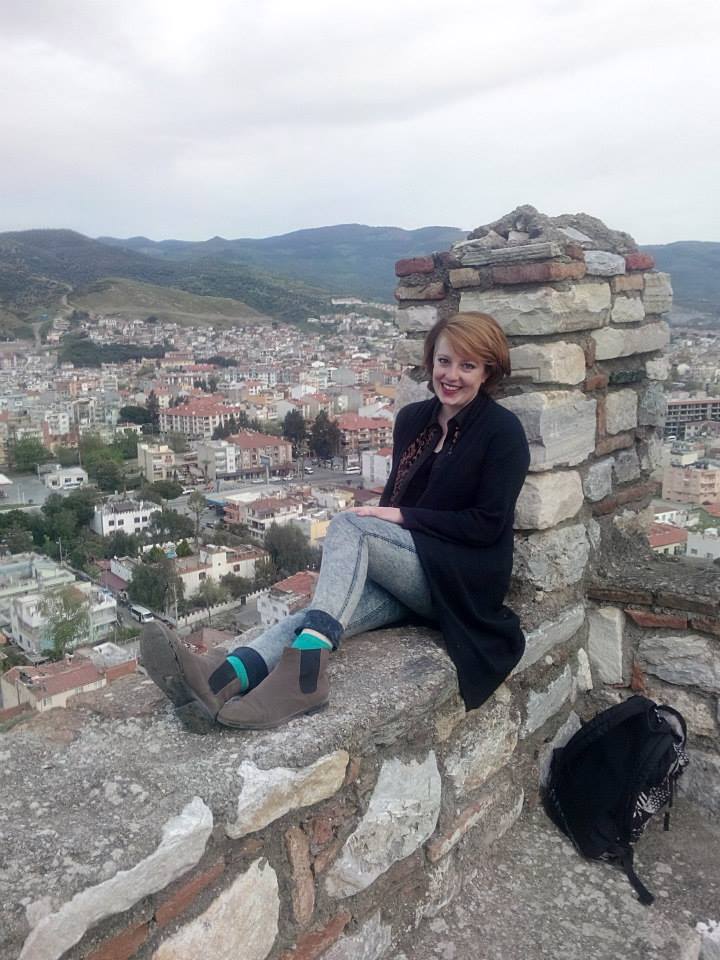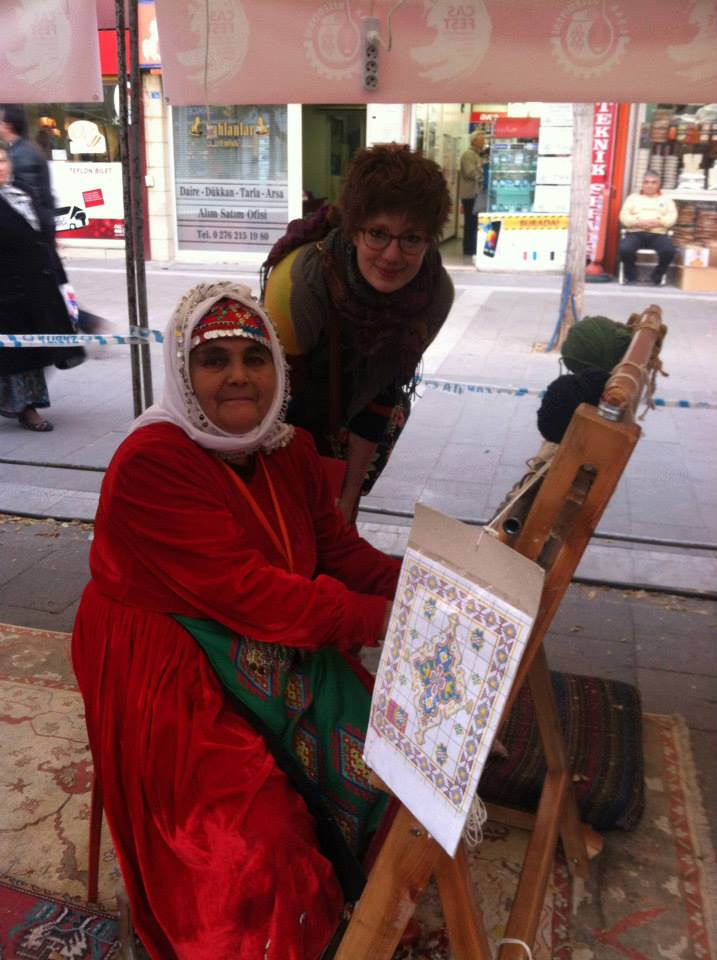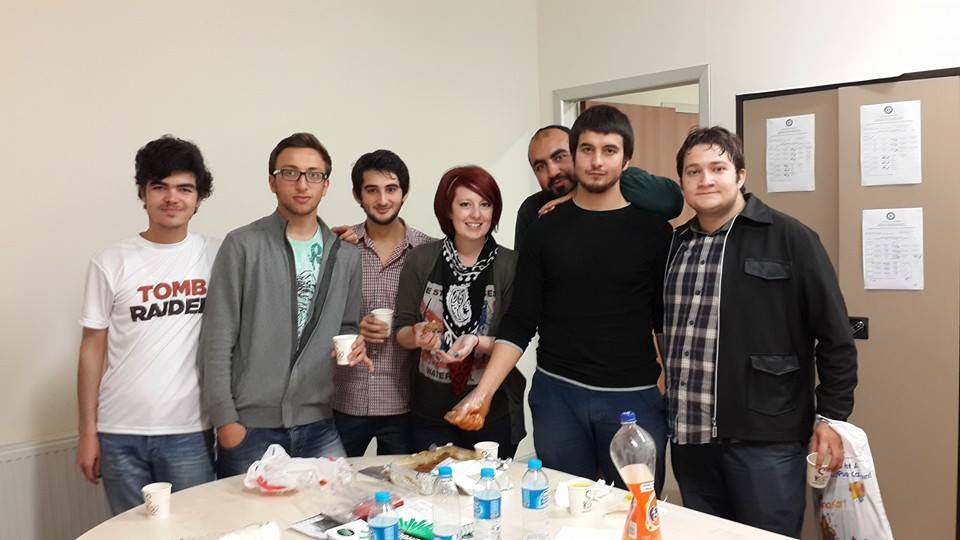
The Fulbright English Teaching Assistantship (ETA) is a unique opportunity for recent college graduates and young professionals to spend 6 months to 1 year in schools overseas, where they supplement local English language instruction and to provide a native speaker presence in classrooms. The age and academic level of the students varies by country, ranging from kindergarten to university level. In addition to providing language instruction, ETAs serve as cultural ambassadors for the U.S. In most cases, Fulbright ETAs are placed outside of capital cities and are integrated into the host community, often an area with limited access to native English speakers and that may not have interacted with Americans before. To learn more about the experience abroad on this particular Fulbright grant, we caught up with Carleigh Morgan, a recent Fulbright ETA in Turkey.
1. What inspired you to apply for the Fulbright ETA in Turkey?
The landmass of Turkey has historically been a site of confrontation, invasion, occupation, and conflict. Since the earliest civilizations imprinted their mark on the area known today as Turkey, the region has witnessed thousands of years of culture gestate, grow, decline, and fade into memory preserved in the crumbling or partially excavated relics that dot the countryside. I have an academic interest in the way that emerging political identities position themselves to this multitudinous historical narrative, particularly since so many of the civilizations that have left their impact in Turkey were historically at odds or in direct opposition as competing cultural influence. As far as nations go, Turkey is a unique model of an industrializing nation that is still grappling with its own historical legacy. Turkey is struggling to reconcile a deeply entrenched nationalism with connectedness to an international political community. I wanted to teach in an area of the world that operated within this complicated and dynamic sense of history and that was still figuring out how to position its larger cultural identity into the framework of a global community that so often has looked at Turkey as the “bridge” between East and West. I especially wanted to investigate how Turkey acts as an unpredictable or irregular pendulum between East and West, rather than as a static open link allowing for an equitable exchange of tidy cultural customs. The prospect of visiting Turkey’s spectacular museums and historical sites, particularly Pergamon and Efes, was a compelling reason for me to go there because I have a longstanding interest in art and architecture, and the opportunity to explore the artistic legacy of Minoan, Phrygian, Lydian, Greek, and Roman culture was too enticing to ignore. I also have a particular fascination with St. George, and the larger-than-life legend of his mission to proselytize in Cappadocia, which led me to visit the underground cities, fairy chimneys, and gorgeous carved churches of one of Turkey’s most breathtaking regions during my fellowship. Ultimately, my main objective was to teach English. I had the tremendous opportunity to establish and expand Usak University’s first intensive English language program for engineers and university faculty. Teaching basic English was a chance for me to refine my teaching skills, gain work experience, and contribute substantially (both personally and professionally) to developing teaching programs abroad and encouraging intercultural awareness and curiosity.
2. What has been the most eye-opening experience during your fellowship?
Turkish hospitality has a particular reputation, and from my experience, it is well earned. I was invited to strangers’ homes for chai on a regular basis, and though I arrived not knowing any Turkish, by the time I left I was saying farewell to a network of friends and colleagues whom I consider family. The most significant difference between Turkish values and American values deals with time
3. What tips would you give other candidates about adjusting to life abroad?
If you’re interested in some tips that I have exclusively for adjusting to Turkey, feel free to check out my post on the education blog Melibee Global. If you’re looking for more general advice, I can say two things. First, be prepared to radically reorient your sense of personal space and private boundaries. You will develop relationships with people and interact with strangers everyday who have lived steeped in social traditions different from your own, whether that difference is slight or severe. If you are travelling alone, you tend to be much more approachable and should learn to maintain your composure and warmth when people cross into your personal bubble. By no means lower your guard or become overly inviting, but learn to recognize when the cultural tenants of your native culture create friction with the cultural tenants of your new home, especially where boundaries of personal space are concerned. As an American with an inherited sense of individualism, I had to shrink my personal boundaries for space when I arrived to Turkey because the notion of self-identity and integration is much more communal.
The second main point is this: never be afraid to advocate for yourself, even if you think no one can understand you. As a single, foreign female living in a remote Turkish village, I was the only native English speaker and my Turkish was non-existent at the beginning of my teaching fellowship. I learned to exercise my agency, claim my space, and advocate for myself in English knowing that my messages would disintegrate at the language barrier but that my tone, facial cues, and body language would adequately speak for me. Don’t ever give up your personal power or relinquish control in unsafe or uncomfortable situations just because you think someone won’t understand your words. In fact, I highly recommend learning a few commanding words, like “stop” or “help” or “police” in a second language so that you can navigate questionable situations and compensate a little bit for the linguistic disadvantage. Expressing your discomfort, fear, or concerns is a far better thing to do in your native language despite the misunderstandings that might occur than to remain silent and expose yourself to harm.
Carleigh is a falconry-obsessed artist who loves testing the permeable boundary between adventure and danger. She holds honors degrees in English Literature and Philosophy from Wake Forest University, and will continue her education at King’s College, London in the fall of 2014. When she’s not scrubbing ink off her nose from having it pressed into the crinkled pages of an old book, she explores open-air museums and archaeological excavations, hikes, creates hip-hop choreography, and studies Gaeilge and Spanish.
© Victoria Johnson 2014, all rights reserved.


I liked this article very much.I am associate professor of English in a college in India. I’d also like to apply for Fulbright English Teaching Assistantship for short term overseas teaching exposure. I’ll be thankful if I get valuable guideline from some exprienced persons.
Hi Dr.Sinha, The Fulbright ETA program currently recruits Americans who are recent graduates. If you are a professor in India I would suggest reading more about the Fulbright program for visiting (non-U.S.) scholars: http://www.cies.org/programs-visiting-non-us-scholars